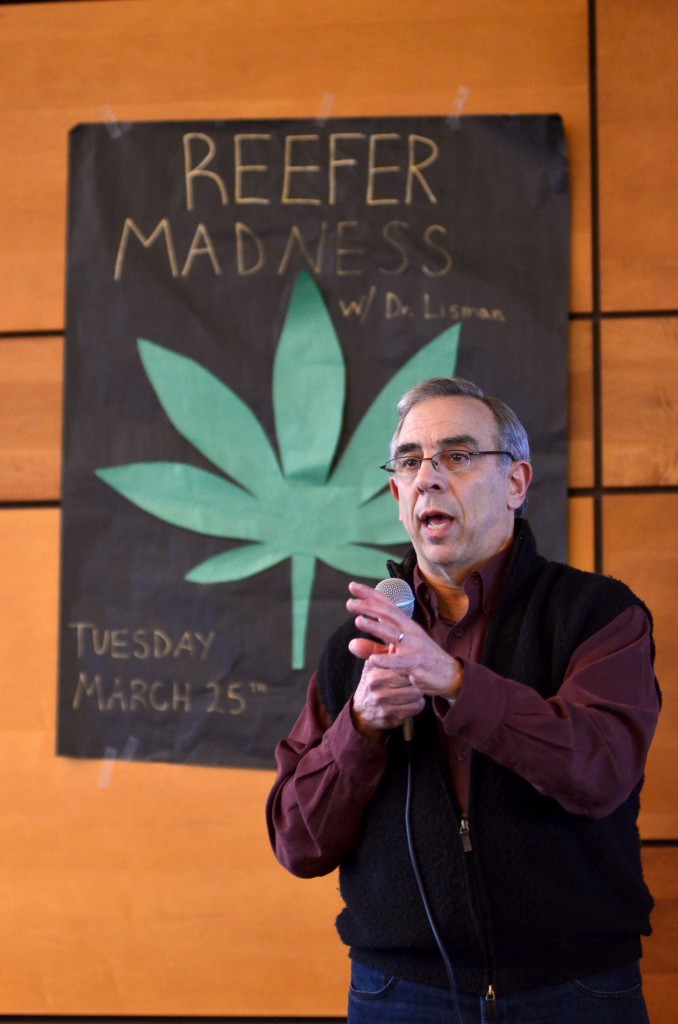
One professor at Binghamton University says that it’s time to figure out the goals, not the tactics, of marijuana legalization.
Students gathered in Appalachian Dining Hall Tuesday to attend an event titled “Reefer Madness.” The talk was given by Stephen Lisman, a psychology professor who currently teaches a class called Drugs and Behavior. After the talk, the professor opened the floor to questions from the audience as brownies were distributed to attendees.
Lisman told the audience it was important for young people to be informed about marijuana and the intricacies of marijuana policy.
“You guys are going to be making the legislation of the future,” Lisman said. “You guys are going to be out of college and making the decisions that affect us, so I want you to think about marijuana policy as complicated.”
Lisman told the audience that before discussing decriminalization and legalization, it was necessary to agree on what the goals of legalization would be. Examples included decreasing the amount of users, decreasing the amount people actually use or introducing healthier techniques with which to use marijuana.
Marla Goldstein, a freshman double-majoring in psychology and human development, said it is important to get and stay informed about marijuana.
“I think that its very important for our generation to stay educated on the revolution that pot is making because everything from 20 years ago is no longer relevant,” Goldstein said. “Like alcohol prohibition, it’s eventually going to be made legal.”
Lisman described the history of how marijuana came to be demonized, telling the story of Harry Anslinger, the first commissioner of the U.S. Treasury Department’s Federal Bureau of Narcotics, who testified before Congress and stated that marijuana could cause madness and murderous tendencies. Anslinger also popularized the idea of marijuana as a gateway drug, saying that marijuana users turned to heroin once the high from marijuana was no longer enough.
Lisman went on to explain that there are certain health issues observed in chronic, heavy marijuana smokers. He said that there is just as much, if not more, tar in marijuana as in cigarettes. He also said that the substances in tobacco linked to cellular cancer mutations are also present in marijuana.
Lisman said that recreational use seemed to be safe from most of these health concerns, but mentioned that more research must be done before this statement can be proven.
“There’s very little basis for thinking that recreational use, meaning something less than three joints or four joints a day, can cause serious health problems,” Lisman said.
Lisman ended the talk by reminding the audience that scientific study was the only way to gain conclusive evidence about the effects of marijuana. In order to move forward, Lisman said, people need to get all the facts on marijuana.
Kenneth Greenstein, an undeclared freshman, said he believed it was important to be informed about marijuana.
“Once the older generation dies off, we’re the generation that makes the laws to legalize it, so we need to be informed,” Greenstein said.


